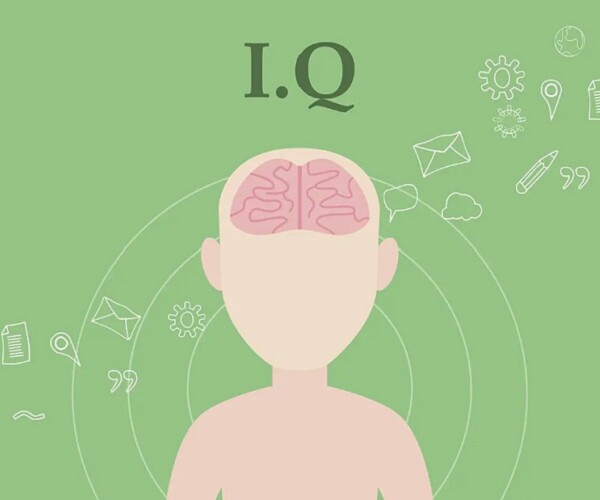A Harvard study found that children’s IQ can be identified as early as age three. And children with high IQs tend to have three habits.


Enjoying Quiet Time, Lost in Their Own World
The ability to maintain a high level of focus often leads to numerous achievements, whether in work or study. Concentration optimizes performance and facilitates knowledge acquisition and the development of new skills.
Observing successful individuals reveals that intense focus is a key factor in their success. They tend to excel at time and energy management.
However, not everyone naturally possesses this ability. Some children prefer silence when playing with toys or watching TV. This could indicate that they are immersed in their inner world.
If a three-year-old exhibits a high level of concentration, it is a sign of a very high IQ. Yet, preschoolers’ attention spans largely depend on their interest in the activity.

Puzzles and jigsaw puzzles help children develop good concentration.
To enhance your child’s concentration, create a conducive and engaging environment. Stimulate their curiosity and interest in learning activities.
For instance, supervise your child while they do their homework to help them stay focused. Assign quick tasks or break down larger ones into smaller, manageable steps.
Additionally, ensure you schedule regular breaks. When children feel overwhelmed, their concentration wanes. Thus, incorporating breaks between learning or play activities is essential. These pauses allow children to recharge, reflect, and reorganize information in their minds.
Puzzles, jigsaws, and games that require attention and patience will help develop these skills while keeping them entertained. Furthermore, engaging in artistic activities like painting, playing musical instruments, or crafting can naturally enhance their focus.

Advanced Language Skills, Always Chattering About Stories
Some children are simply “chatterboxes” in their parents’ eyes. These kids tend to be curious and eager to explore the world around them. They fearlessly express their thoughts and emotions, which can sometimes overwhelm their parents.
Their questions are endless, ranging from simple inquiries like, “Why is the sky blue?” to more complex ones such as, “Why can’t we fly like birds?” This demonstrates not only their creativity but also their curiosity and developing independent thinking skills.
If your child loves to talk, refrain from interrupting them. Their minds are active during these conversations, generating new ideas and unique perspectives. Instead of feeling exhausted or annoyed by the constant questioning, view it as an opportunity to encourage their cognitive development.

Advanced language skills, always chattering about stories.
Listening to your child makes them feel valued and creates a safe space for self-expression. These conversations provide insights into how they perceive the world and navigate life.
Engage in frequent chats with your child, even on seemingly trivial topics. These open discussions enhance their communication skills, improve their expression, and foster critical thinking.
For instance, if your child asks about a natural phenomenon, explore it together. This creates a natural and enjoyable learning opportunity, expanding their knowledge and encouraging curiosity and a thirst for discovery.

Fondness for Practical Jokes
Some children always seem to be up to something, with their heads full of quirky ideas. While their pranks may exasperate adults, they indicate a vivid imagination and remarkable creativity.
In devising these jokes, children exercise their thinking and planning skills, thereby enhancing their cognitive and problem-solving abilities. They engage their brains in unique ways, and while their antics may sometimes be irritating, they play a crucial role in their intellectual and emotional development.

A fondness for practical jokes.
However, parents should not entirely condone mischievous behavior or refrain from intervening. While it is essential to allow children the freedom to explore and express themselves, setting boundaries and rules is also crucial for developing good habits and manners.
These guidelines help children understand the limits of acceptable behavior and teach them about responsibility and the consequences of their actions.
As your child grows, they will experience both joys and sorrows. It is important to recognize both their strengths and weaknesses and maintain a balanced perspective.
This means encouraging their creativity and independent thinking while also providing guidance and correction when necessary. When children learn to distinguish between creative expression and disruptive behavior, they can develop in a healthier direction.




































